|
Junjun Yan (颜君峻) is a master student at degree College of Computer Science and Technology, National University of Defence Technology (NUDT). He is supervised by Prof. Jie Liu and work with Dr. Xinhai Chen in Laboratory of Digitizing Software for Frontier Equipment (LDSFE). His research interests is Scientific Machine Learning, Physics-informed Learning, Deep Operator Learning and High Performance Computing. Email / CV / Github / ResearchGate |
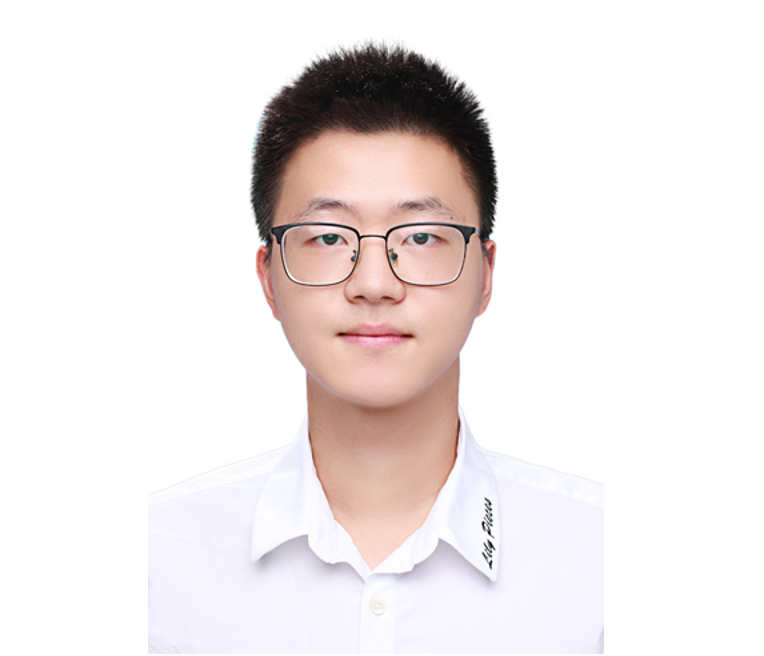
|
|
|
My research interests include Scientific Machine Learning, Physics-informed Learning, Deep Operator Learning and High Performance Computing. The representative papers are highlighted. |
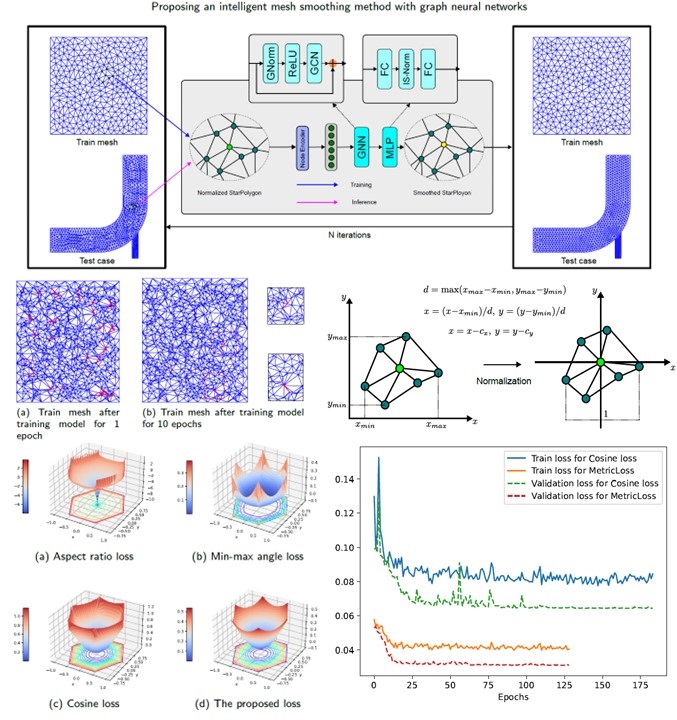
|
Zhichao Wang, Xinhai Chen, Junjun Yan, Jie Liu Under Review Paper / Code We present GMSNet, a lightweight neural network for intelligent mesh smoothing. GMSNet adopts graph neural networks to extract features of the node’s neighbors and output optimal node position. We also introduce a fault-tolerance mechanism to avoid negative volume elements. With a lightweight model, GMSNet can effectively smooth mesh nodes with varying degrees and remain unaffected by the order of input data. A novel loss function, MetricLoss, is developed to eliminate the need for highquality meshes, providing a stable and rapid convergence during training. |
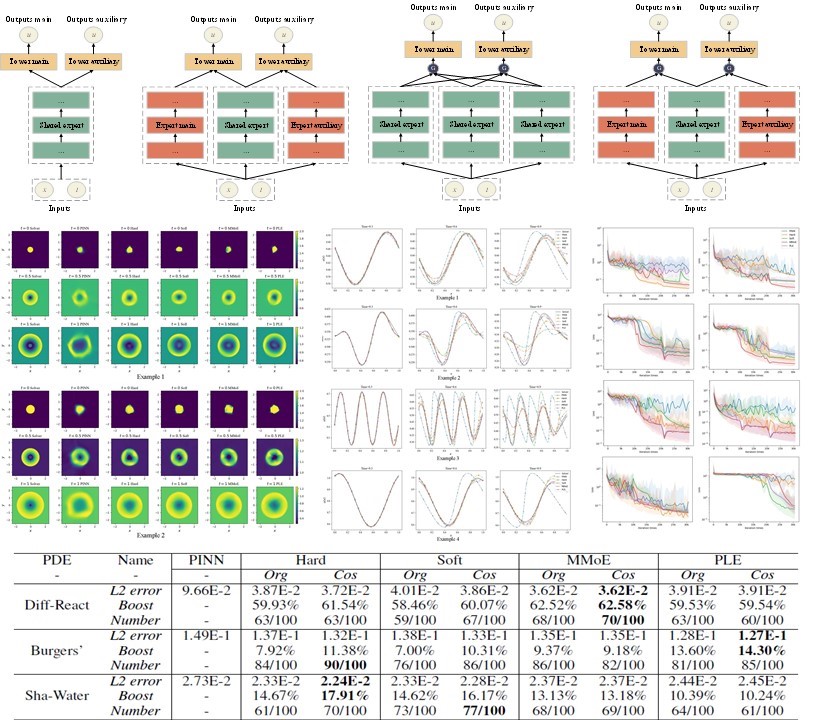
|
Junjun Yan, Xinhai Chen, Zhichao Wang, Enqiang Zhou, Jie Liu Under Review Paper / Code We have undertaken a comprehensive study into the training processes and convergence mechanisms of physics-informed learning, leading to the development of ATL-PINN, an auxiliary-task learning framework tailored for PINNs. Our ATL-PINN framework concurrently solves multiple PDE tasks to narrow the latent solution space, enhancing the inductive bias and robustness of the underlying PDE's prediction accuracy. |
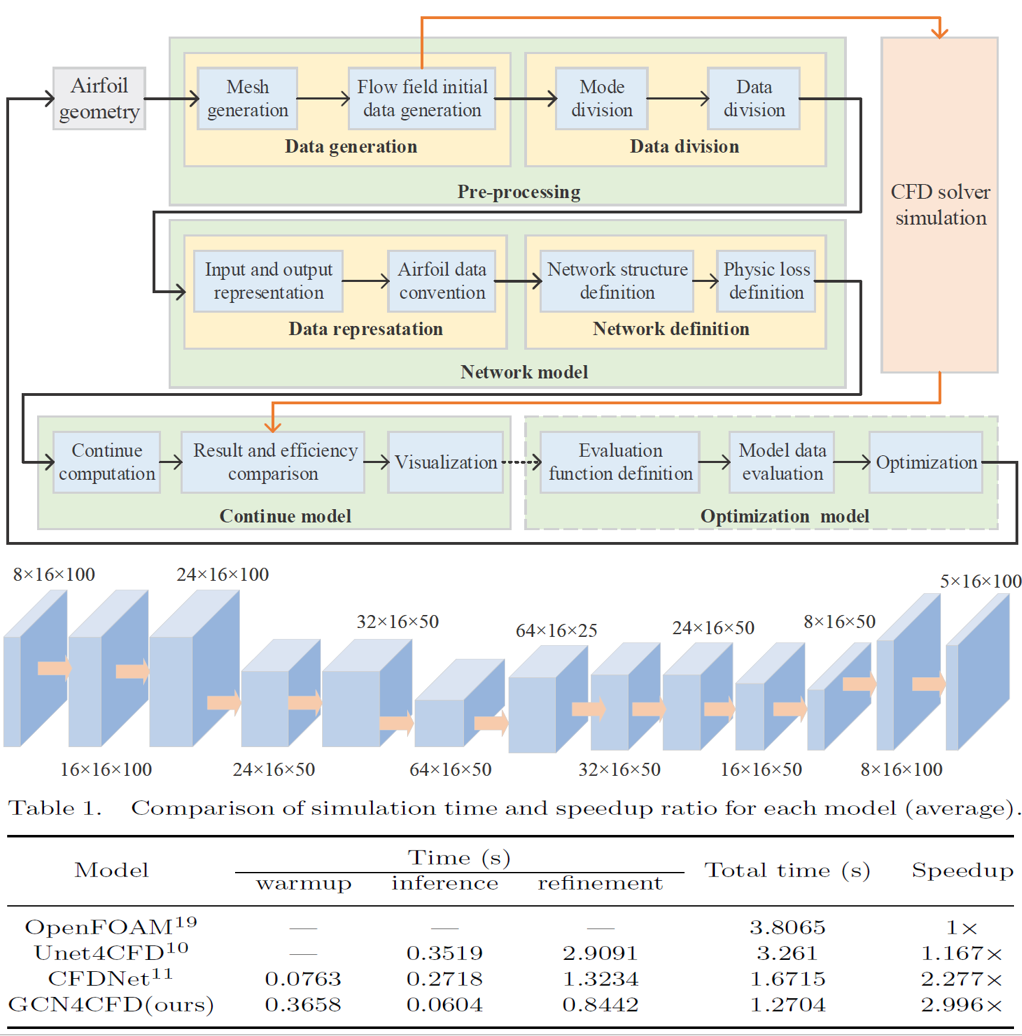
|
Tiejun Li, Junjun Yan, Xinhai Chen, Zhichao Wang, Qingyang Zhang, Enqiang Zhou, Chunye Gong, Jie Liu International Journal of Modern Physics C, IJMPC Paper / Code We propose a novel GCN-based aerodynamic design optimization acceleration framework, GCF. The framework significantly improves processing efficiency by optimizing data flow and data representation. We also introduce a network model called GCN4CFD that uses the GCF framework to create a compact data representation of the flow field and an encoder-decoder structure to extract features. This approach enables the model to learn underlying physical laws in a space-time efficient manner. |
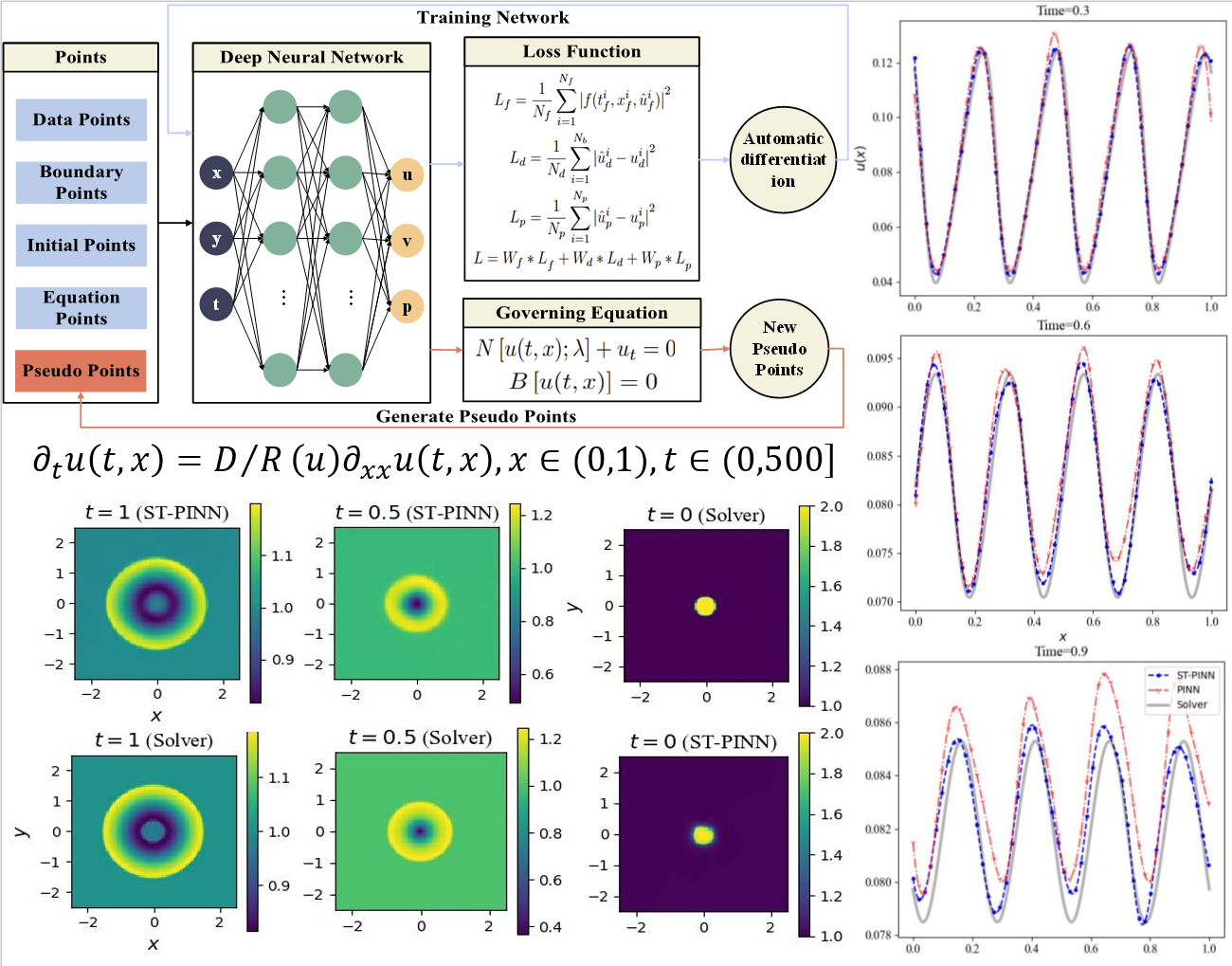
|
Junjun Yan, Xinhai Chen, Zhichao Wang, Enqiang Zhou, Jie Liu IEEE International Joint Conference on Neural Networks, IJCNN 2023 Paper / Code We proposed ST-PINN, which combines self-training with physics-informed neural networks (PINNs) to leverage unlabeled data and physical information. The core of STPINN is to embed the residual of pseudo points into the loss function, thus extending the physical information by directly learning from the residual. |
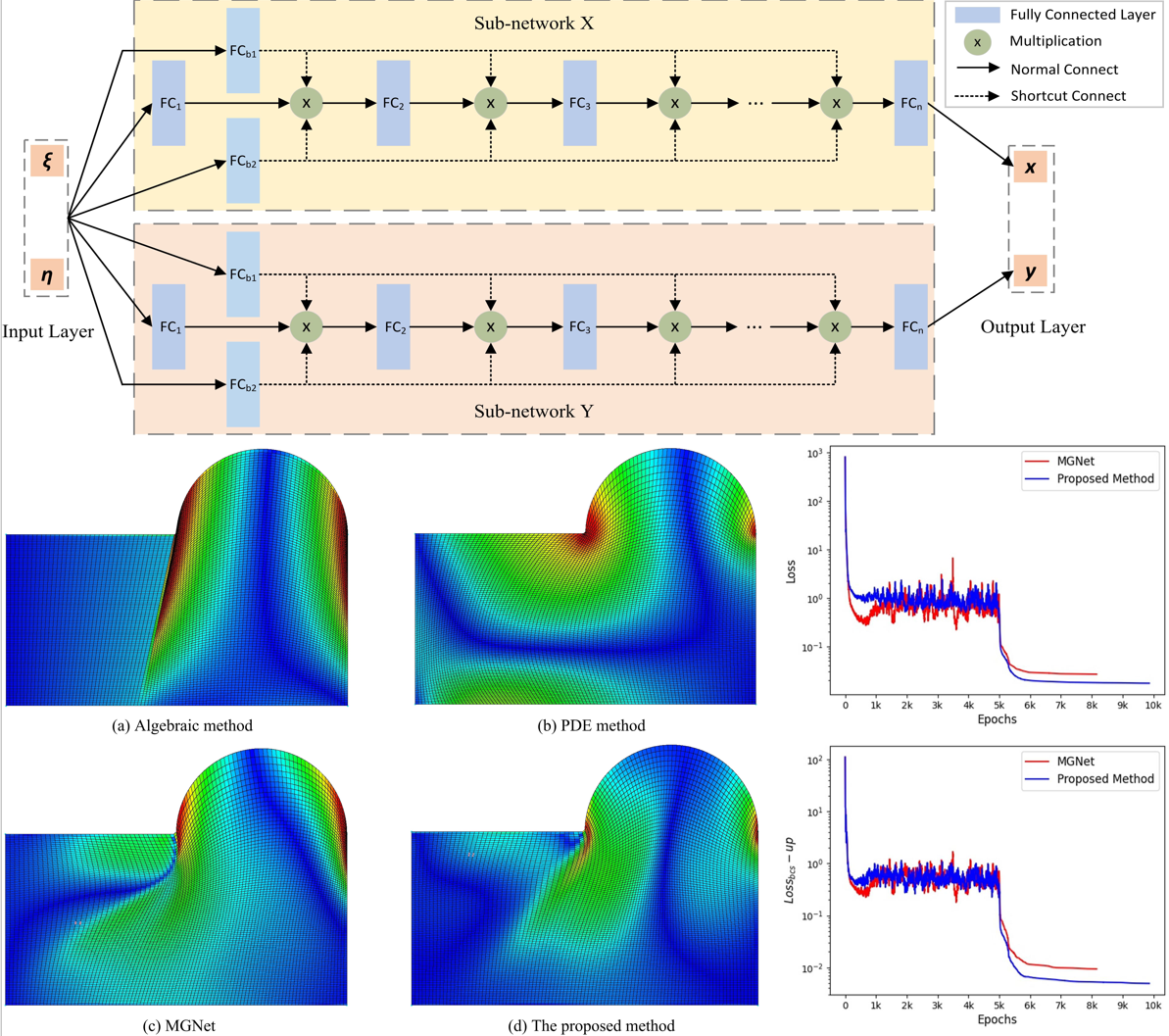
|
Xinhai Chen, Junjun Yan, Zhichao Wang, Chunye Gong, Jie Liu Under Review Paper / Code We present an improved structured mesh generation method. The method formulates the meshing problem as a global optimization problem related to a physics-informed neural network. |
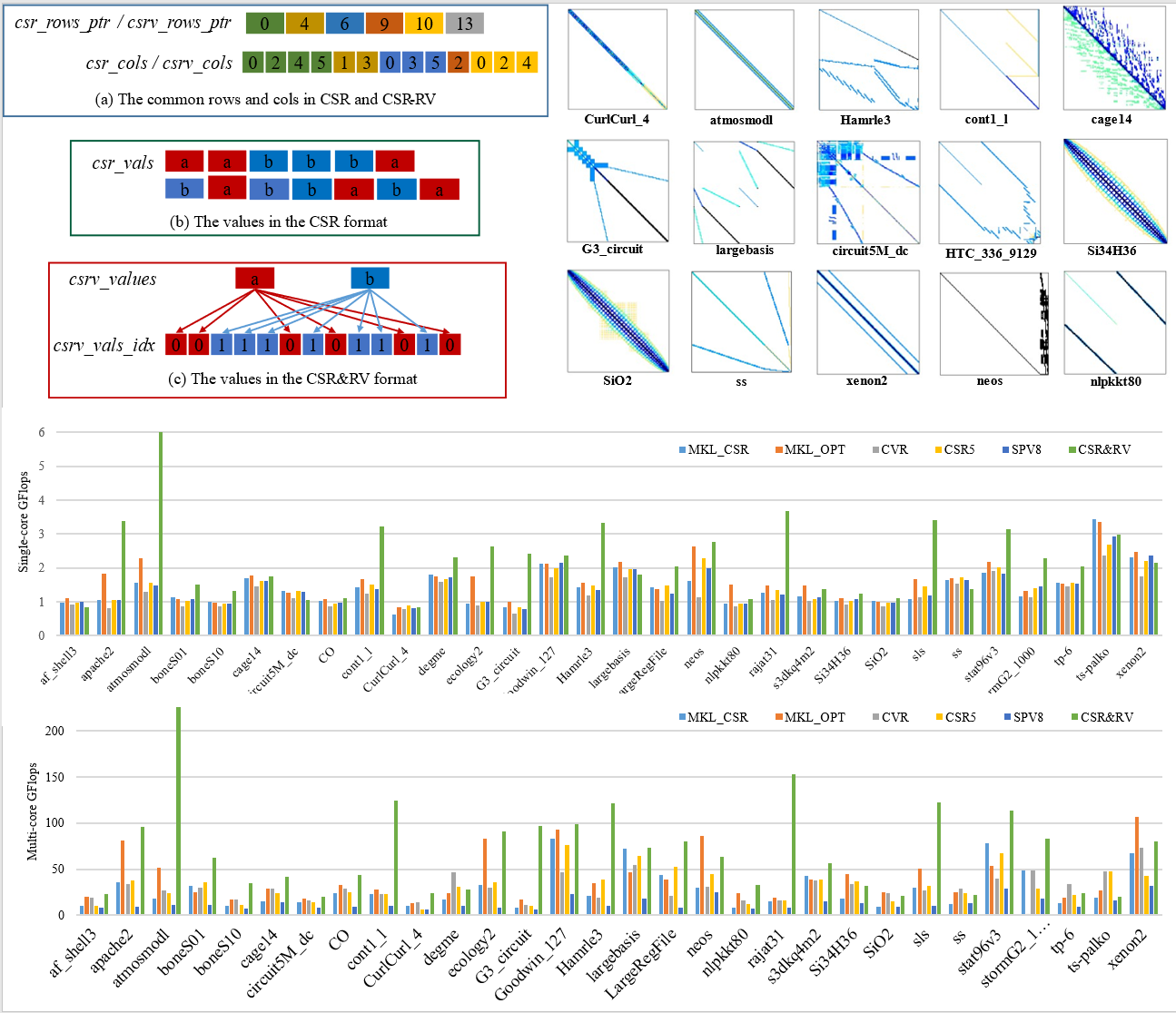
|
Junjun Yan, Xinhai Chen, Jie Liu 19th IFIP International Conference on Network and Parallel Computing, NPC 2022 Paper / Code We propose an efficient value compression format called Compressed Sparse Row and Repetition Value (CSR&RV). This format saves each different value once and uses the indexes array to save the position of values, which reduces the storage space by compressing the value array. |
|
|
|
|
|
|
Design and source code from Jon Barron's website